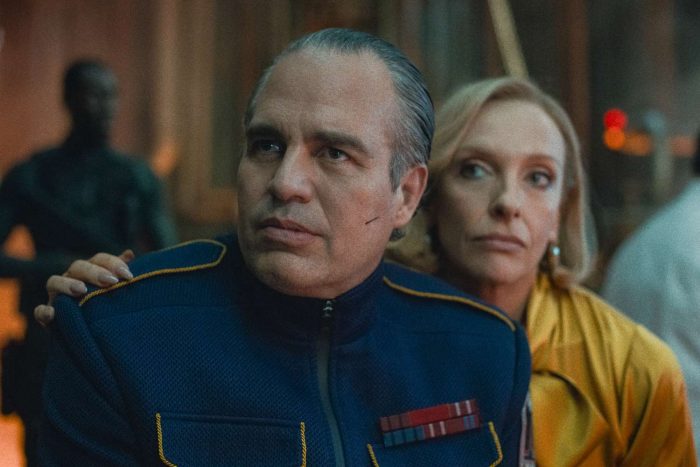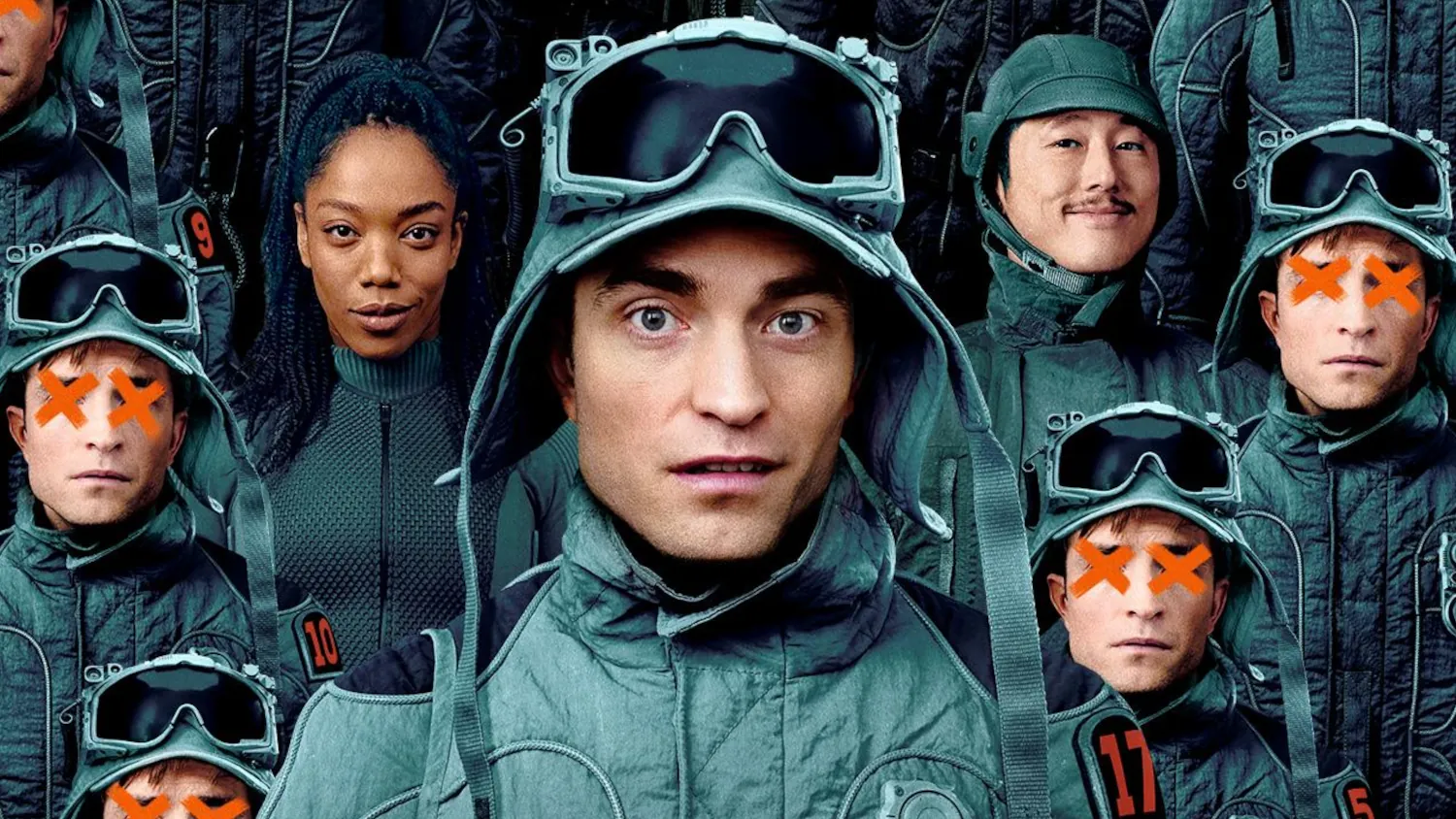Acclaimed South Korean Director’s latest sci-fi thriller starts strong but gets lost amongst muddled themes and panto performances.
Mickey 17 is oscar-winning filmmaker Bong Joon Ho’s return from a 6-year directorial hiatus following the immense success of 2019’s Parasite (the first foreign language film to win Best Picture at the Oscars) but fails in many ways to replicate the thick tension and sharp political commentary of his earlier works.
The film follows Mickey Barnes (Robert Pattinson), a dim but endearing man set out on a space-faring mission to colonise another planet. Mickey is an ‘expendable’, his job is to do the dangerous grunt work of the mission, safe in the knowledge that every time he dies, a replica of him will be reprinted aboard his ship. On his journey, he falls in love with Nasha (Naomi Ackie) and is confronted, inevitably, with both the ethical challenges of bio-cloning and the clumsy evil of the deeply symbolic loan-shark turned politician Kenneth Marshall (Mark Ruffalo) and his eccentric wife Ylfa (Toni Collette).
Mickey 17 starts strong. In the opening half an hour, Joon Ho introduces the themes most common to his work: class, cult-like politics, and religion, inserting them naturally and succinctly into our setting of the not-too-distant future, where the lines between technology, capitalism and religion are blurred. The unashamedly unsubtle class motif, with the working inhabitants of our spaceship subsisting on grey gruel, whilst the rich Kenneth and Ylfa dine in lavish abundance is strikingly similar to other works of Joon Ho’s, particularly Snowpiercer (2013), and whilst the classist overtones aren’t explored in great depth, they work well within the setting of the film.
The other sub-themes of the film, however, fall foul of the central problem of the film itself; it cannot decide what it is. Just as Mickey 17 blurs the line between comedy, thriller, horror, sci-fi and a touch of romance (failing to become any of these things or even a passable balance of them), so does Bong Joon Ho play with the myriad themes he sets out to explore. Through Mark Ruffalo’s character, Kenneth Marshall, a caricature of any number of populist, inept politicians, (take your pick!) we are reminded of the dangers of blind faith and political zealotry, but this thought is quickly lost amongst the barrage of other messages pushed on the audience.
Moreover, the blurring of the thematic lines between religion and capitalism, whilst effective in producing some gags (Marshall’s aide keeps correcting him when he refers to his Church as ‘the company’), is never truly fleshed out; neither are the infrequent references to fascism (the ‘superior people’ on a ‘pure white planet’). A result of this is a lack of drive throughout the middle section of the film, our story isn’t really tied to any message beyond the most base desire to have our protagonist overcome the antagonist(s), leading to an underwhelming conclusion.
Some questionable performances from Mark Ruffalo and, to a lesser extent, Toni Collette, take what was already a poor film and thrust it into the absurd. Ruffalo gives a panto-like energy to Kenneth Marshall, at times so out of place with the tension of the film it verges on breaking the fourth wall; whether this effect was intentional or not, it certainly doesn’t help the audience to rejoice at his eventual demise. At times Ruffalo reminded me of his performance in Yorgos Lanthimos’ 2023 Poor Things, where the film’s embrace of the absurd at large allowed his performance to flow more naturally within the context of the film. Toni Collette suffers from a similar problem, although she doesn’t threaten to completely remove the audience from the film as Ruffalo does, perhaps her performance is curious only in the context of Ruffalo’s absurdity.

Thankfully, Robert Pattinson and particularly Naomi Ackie are much better, with Pattinson embracing the challenge of playing two very different roles (Mickeys 17 & 18), proving he has matured hugely from his Twilight days. Naomi Ackie delivers her performance with passion and humour and is one of the most enjoyable parts of this film.
Whilst there were undoubtedly some sparks of brilliance amongst the film’s shortcomings; Bong Joon Ho and cinematographer Darius Khondji did a brilliant job with the look of the film, ultimately there were too many miscalculations to produce something worth watching. In the end, Mickey 17 was one of those films you could’ve walked out on after an hour and not missed a thing, proving again the vital importance of the basics: pacing, narrative drive and a clear sense of identity.
